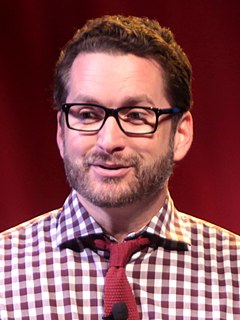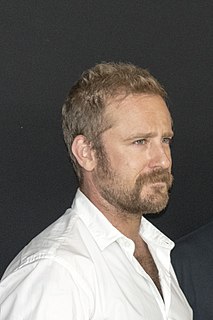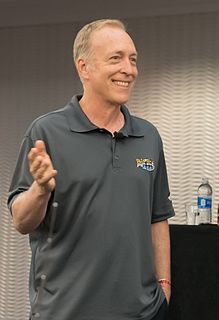A Quote by Michael Haneke
A feature film is twenty-four lies per second.
Quote Topics
Related Quotes
Film as dream, film as music. No form of art goes beyond ordinary consciousness as film does, straight to our emotions, deep into the twilight room of the soul. A little twitch in our optic nerve, a shock effect: twenty-four illuminated frames a second, darkness in between, the optic nerve incapable of registering darkness.
Here in the United States we're now consuming about three gallons of petroleum per person per day. That's twenty pounds of oil per person per day. We only consume about four pounds of oxygen per person per day. We're consuming five times more oil each day, here in the United States than we are oxygen. We've become the oil tribe.
And you can put your total energy for the inner eye. The outside eyes are wasting eighty percent of energy - it is the major part. Man has five senses, eighty per cent is taken away by the eyes and only twenty per cent is left for the other four senses. They are very poor people, those four. Eyes are very rich, they have monopolised the whole thing; hence it is good - eighty per cent energy is saved - and that can be immediately used for witnessing, for seeing your inner world. hence in the East we call a person who is blind 'pragyanshakshu' - this word is untranslatable.
I did the original Robotron game back in 1982. To me it's still one of the classic 2D games as far as action and decisions per second, and kills per second, and explosions per second. It's super-frenetic and totally involving. There's been a lot of games since, a lot of Robotron sequels. A lot of them haven't even captured the magic of Robotron, much less moving things forward.


































